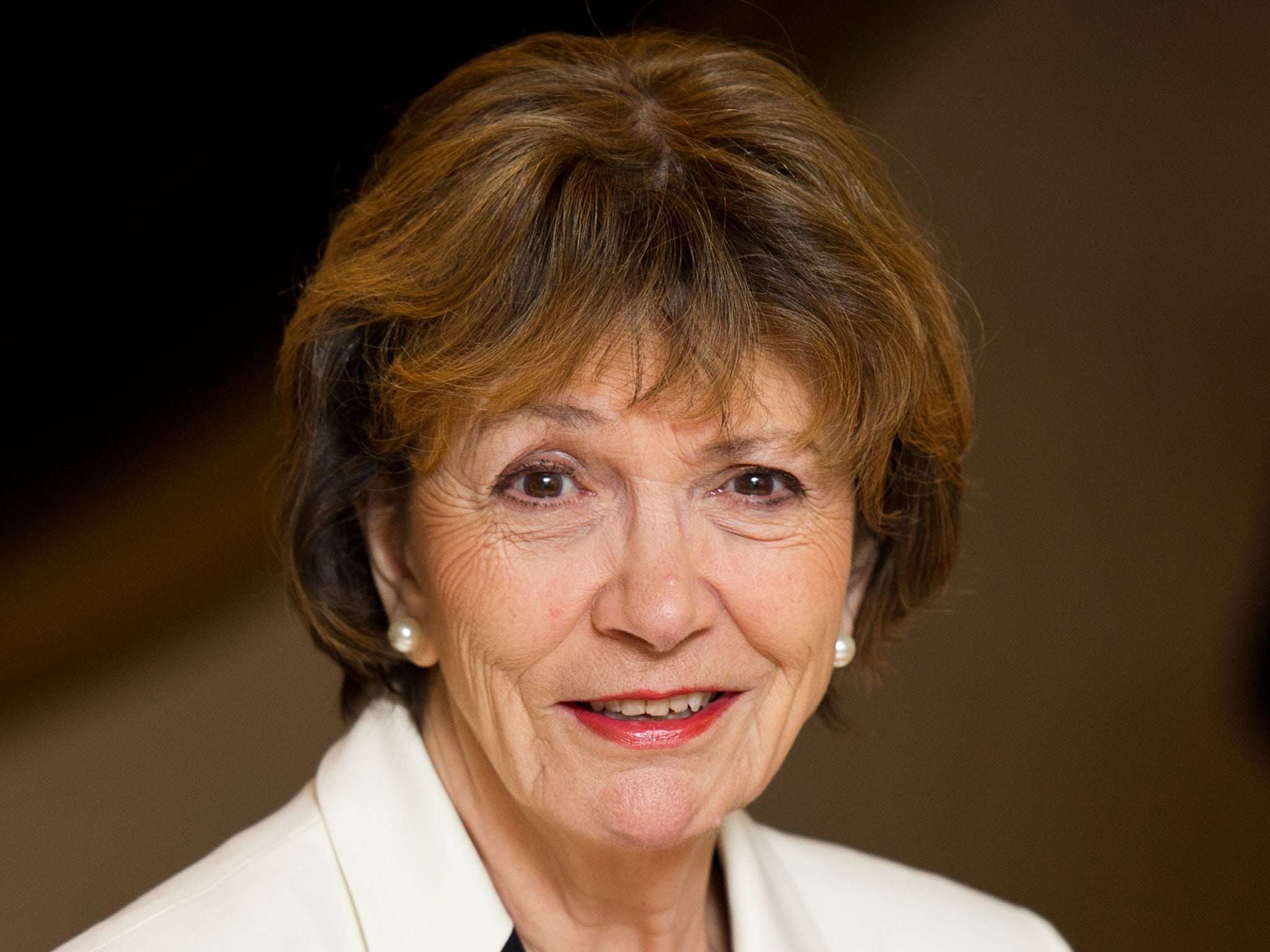Labour peer Joan Bakewell says eating disorders like anorexia are a sign of 'narcissism'
'No one has anorexia in societies where there is not enough food. They do not have anorexia in the camps in Syria'

Labour party peer Baroness Joan Bakewell has said the rise of eating disorders such as anorexia among teenagers is a sign of “narcissism”.
In an interview with The Sunday Times, the British journalist attributed anorexia to a growing sense of “self-regard” amongst young people and unhappiness with body image to “the overindulgence of our society”.
“I am alarmed by anorexia among young people, which arises presumably because they are preoccupied with being beautiful and healthy and thin,” the 82-year-old said.
“No one has anorexia in societies where there is not enough food. They do not have anorexia in the camps in Syria. I think it’s possible anorexia could be about narcissism”.
The President of Birkbeck University, who is chairing the Wellcome book prize judging panel, has been the subject of criticism on Twitter.
In response to criticism from one parent on Twitter, she said: “It's not your daughter who's narcissistic: it's the culture.”
She also added: “If I've stirred a public discussion about anorexia... Good. Let's have more research and information.”
Figures show that hospital admissions for eating disorders for young people have risen in recent years.
Last year, a total of 2,965 children were treated on wards for anorexia and other eating disorders – a 12 per cent rise in one year.
In her interview, Bakewell also said teenagers today were more inward-looking and conscious of their bodies than in the past.
“Anorexia is one example of the way people have become very self-regarding. Everyone does these surveys that show schoolchildren are worried about their bodies, or are not happy.
”We had no chance to discuss that when we were young. We just had to survive,” she continued.
Although Bakewell did add that teenager’s today had become “more liberated about their bodies” and this was “a plus”.
Subscribe to Independent Premium to bookmark this article
Want to bookmark your favourite articles and stories to read or reference later? Start your Independent Premium subscription today.

Join our commenting forum
Join thought-provoking conversations, follow other Independent readers and see their replies